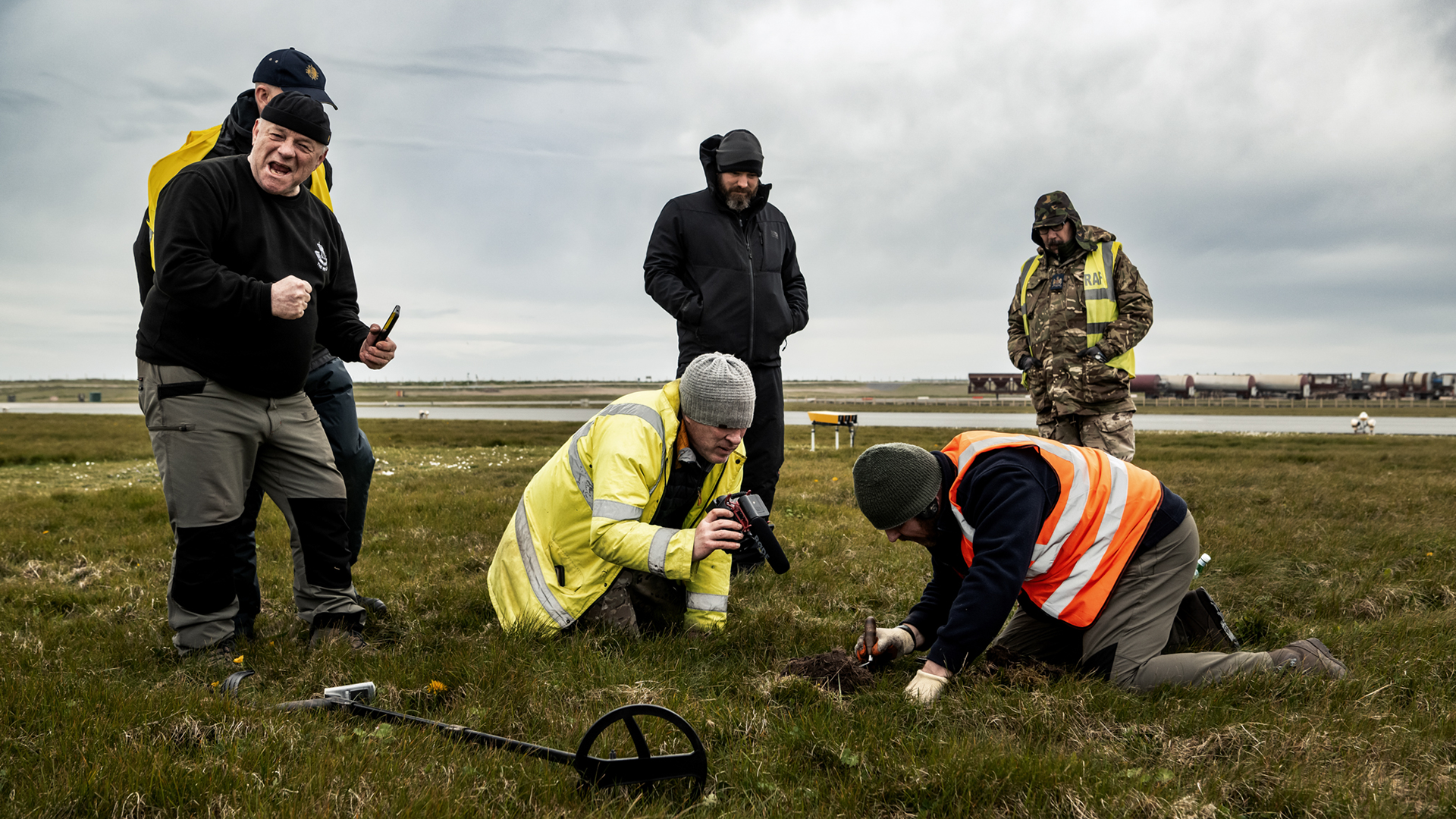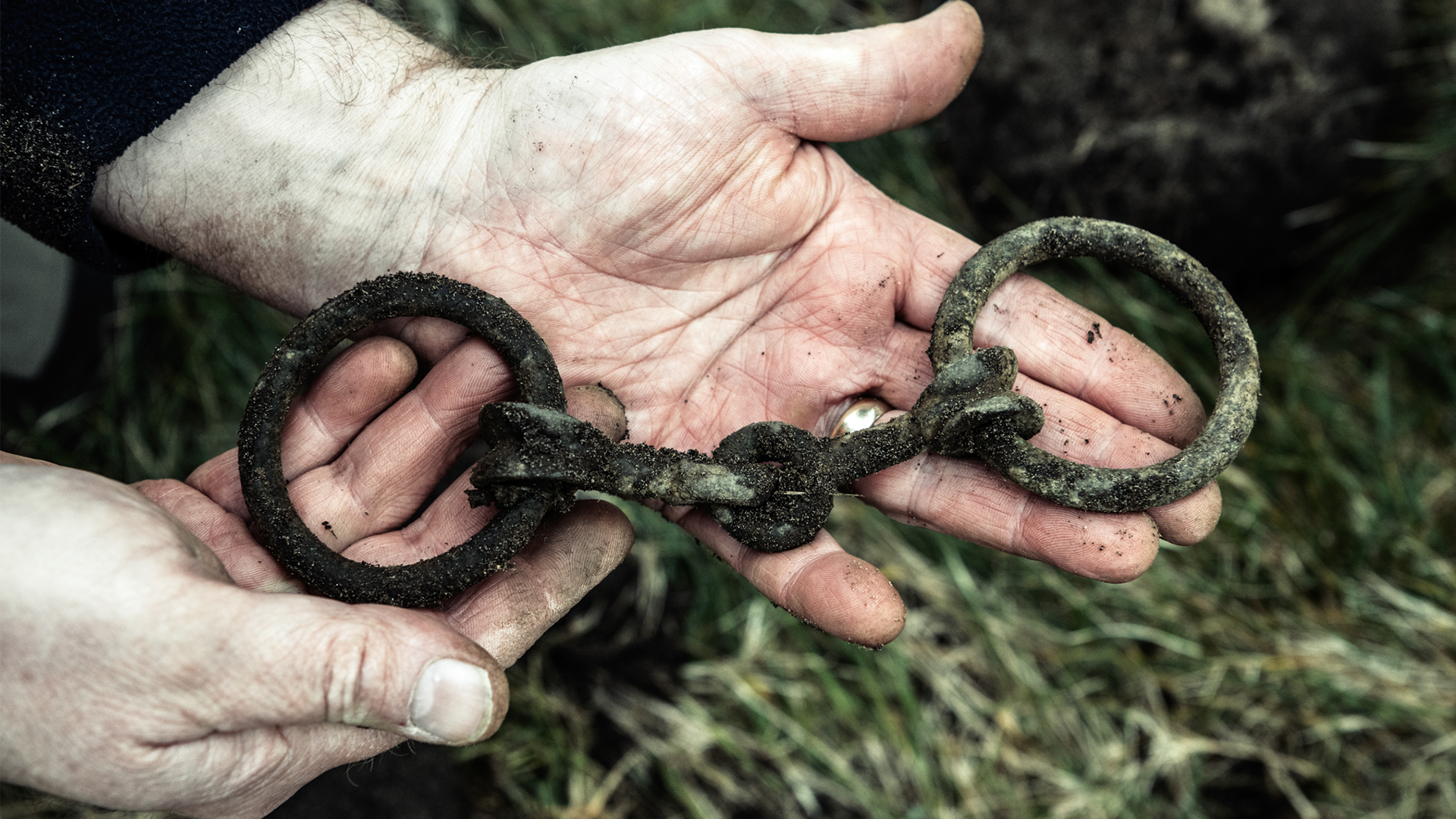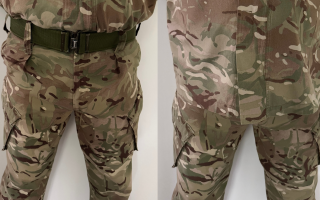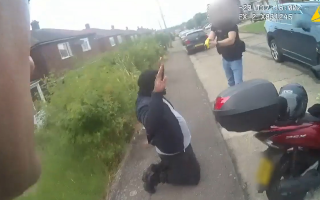
RAF airfield offers up treasure as veterans and personnel uncover Iron Age relics

Lost Iron Age treasures have been uncovered by military personnel and veterans at RAF Valley in Anglesey, and have now been declared a national treasure.
During an excavation at the airfield, parts of a Celtic chariot believed to be about 2,000 years old were discovered by military personnel and veterans.
The artefacts will now be presented to Amgueddfa Cymru – Museum Wales.
The archaeological dig took place in April, led by the Defence Infrastructure Organisation (DIO), and involved military personnel and veterans from Operation Nightingale.
This initiative, which supports the health and wellbeing of veterans, provided a unique opportunity for them to participate in the excavation.
Veterans Minister Alistair Carns praised the team's efforts, saying: "Operation Nightingale is an innovative and award-winning programme that consistently shows the benefits that archaeology can bring."
The newly discovered artefacts are thought to be part of the Llyn Cerrig Bach hoard, a collection of more than 150 bronze and iron objects, discovered in the 1940s during expansion works at RAF Valley.
The hoard is one of the most significant collections of Iron Age artefacts in the UK.

Among the finds were a terret ring, which guided the reins of a Celtic chariot, and a horse bridle-bit from around 60AD.
The terret ring, found by retired RAF Squadron Leader David Ulke, is one of only three such pieces with this decoration found in Wales.
The bridle-bit, discovered by serving RAF Flight Sergeant Graham Moore, resembles those found in the Polden Hill hoard in Somerset.
DIO's senior archaeologist, Richard Osgood, shared his excitement, saying: "These finds at RAF Valley are extremely exciting for all involved; the Llyn Cerrig Bach hoard is of national importance for Wales, and the United Kingdom as a whole.
"It's great that the personnel and veterans who take part in Operation Nightingale continue to be rewarded with finds of such historical importance."
He added: I am proud that the initiative plays a part in supporting personnel and veterans in their recovery and it's fantastic to see the wonderful impact of this project."
The excavation was approved by RAF Valley ahead of planned refurbishment works on the site's airfield, which began in September 2024.
David Ulke, who found the terret ring, said: "We’d been briefed on the sort of things we could expect to find, so when I uncovered the piece, I was pretty sure it was an Iron Age terret ring.
"To say I was over the moon is probably an understatement! I've been involved in archaeology for many years, and this was by far the most significant recovery I have ever made."
The finds will be handed over to the National Museum of Wales, where they will join items from the original Llyn Cerrig Bach hoard.









